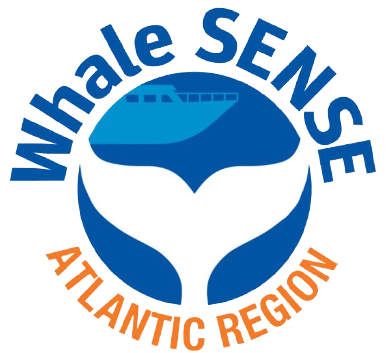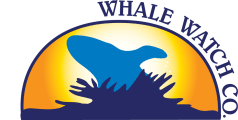
Allied Whale at the College of the Atlantic
For nearly two decades, Bar Harbor Whale Watch has partnered with , a non-profit marine mammal research organization based at the College of the Atlantic, Bar Harbor. Every season, research interns work on the whale watch vessel to conduct research and outreach programs. When you come out on a whale watch with Bar Harbor Whale Watch you help to support this valuable research and whale conservation efforts.
What kinds of data is being collected?
- Locations of sightings to understand whale migration and distribution.
- Photo images of natural body markings on large whales such as humpback and fin whales for population and behavior studies. The images are cataloged in both the North Atlantic Humpback Whale Catalog and North Atlantic Fin Whale Catalog.
- Environmental variables such as wind direction, sea state, cloud cover, and sea surface temperate to provide information about general weather patterns observed during whale watch trips and when watching whales.
Allied Whale research interns create photo albums of the whales and other wildlife seen on our trips! Check out our !
Center for Coastal Studies: Gulf of Maine Humpback Whale Catalog
The has been studying humpback whales since the 1970’s. We partner with both Allied Whale and Center for Coastal Studies to contribute data to the Gulf of Maine Humpback Whale Catalog. This research has provided information about individual whales, including gender, distribution, behavior, reproduction, associations, and human impact. Working together with other research organizations and whale watch companies, the Gulf of Maine Humpback Whale Catalog has allowed for continued management and protection of humpback whales.
Passengers are also welcome to submit their own photos to the catalog. Visit their to learn more!
Friends of Maine Coastal Islands National Wildlife Refuge
The FOMCI NWR works to help protect seabirds through increasing public awareness and supporting the Maine Coastal Island National Wildlife Refuge. When visiting Petit Manan Island to view breeding Atlantic puffins and other seabirds, we talk with the research technicians to learn about each nesting species and the field work being conducted on the island.
To help support FOMCI NWR, we raise funds through puffin buttons we sell at our gift shop and host a benefit cruise in July.
Our collaboration has allowed us to education millions of passengers, which is key in helping to protect seabirds.
Oceanography for Everyone
Since 2021, Bar Harbor Whale Watch Company has collaborated with and to collect ocean data through the use of a CTD. This kind of instrument collects salinity, temperature, and depth data to help track changes in the water column.
During the whale watch cruises, we deploy the CTD from the boat allowing passengers to observe science in action! The data is available to view and download from the website.
A paper in the journal Oceanography was recently published that included data collected on our whale watch boats.
Whale SENSE
We were the first whale watching company in Maine to be certified under the Whale SENSE program. We believe strongly in protecting the whales we love and the many we know as individuals and by name. It is very important to approach whales slowly, stay back 100 feet or more, and never cut them off – especially when they are feeding. Hearing and sound are critical to whales and we would never want them to become conditioned to loud boat or ship noise. Whales being hit and killed by large ships with propellers is one of the most important conservation concerns effecting whales. We have highly trained and experienced captains who handle the boat in a responsible way around whales. We follow and promote the NOAA Northeast Guidelines for Whale Watching.
What is Whale SENSE? Whale SENSE is a voluntary education and certification program offered to commercial whale watching companies in the U.S. Atlantic and Alaska Regions. The program is sponsored by NOAA Fisheries, Stellwagen Bank National Marine Sanctuary, and Whale and Dolphin Conservation. Developed in collaboration with the whale watching industry, Whale SENSE recognizes whale watching companies committed to responsible practices. Participating companies agree to:
- Stick to the regional whale watching guidelines.
- Educate naturalists, captains, and passengers to have SENSE while watching whales.
- Notify appropriate networks of whales in distress.
- Set an example for other boaters.
- Encourage ocean stewardship.
It’s the SENSE-ible choice! Choosing a Whale SENSE program participant for your whale watching tour is a simple and effective personal choice that promotes and supports responsible whale watching and whale conservation. To learn more about Whale SENSE, or for more information on whales in the northeast region, visit their website at www.whalesense.org.
